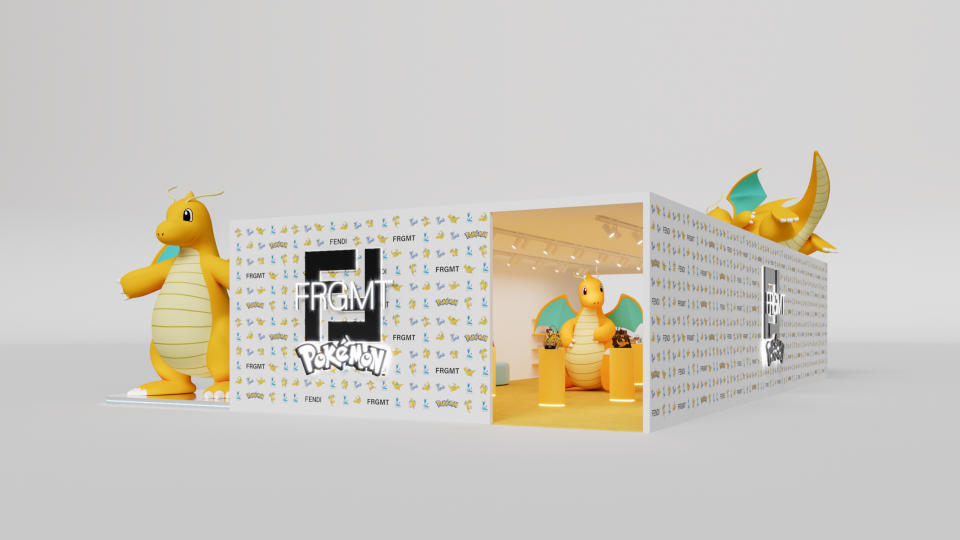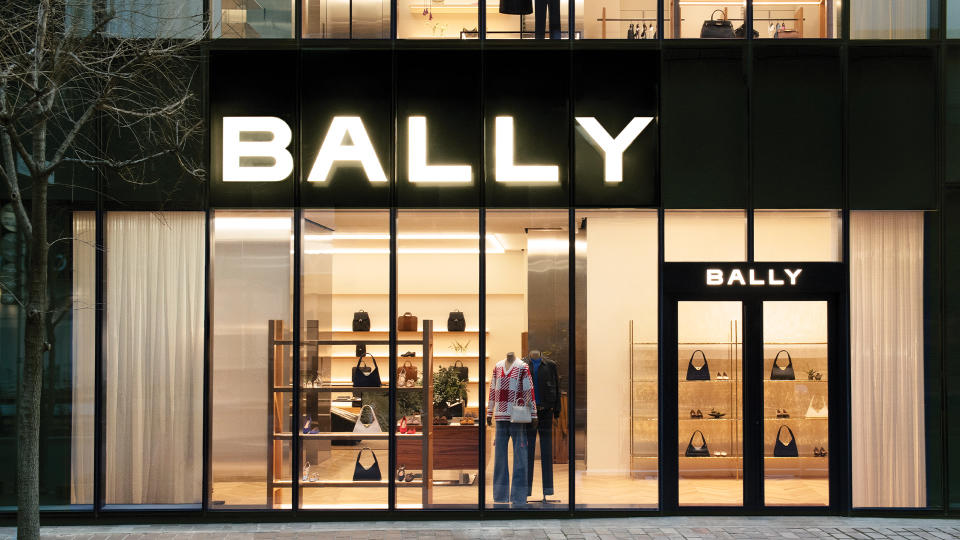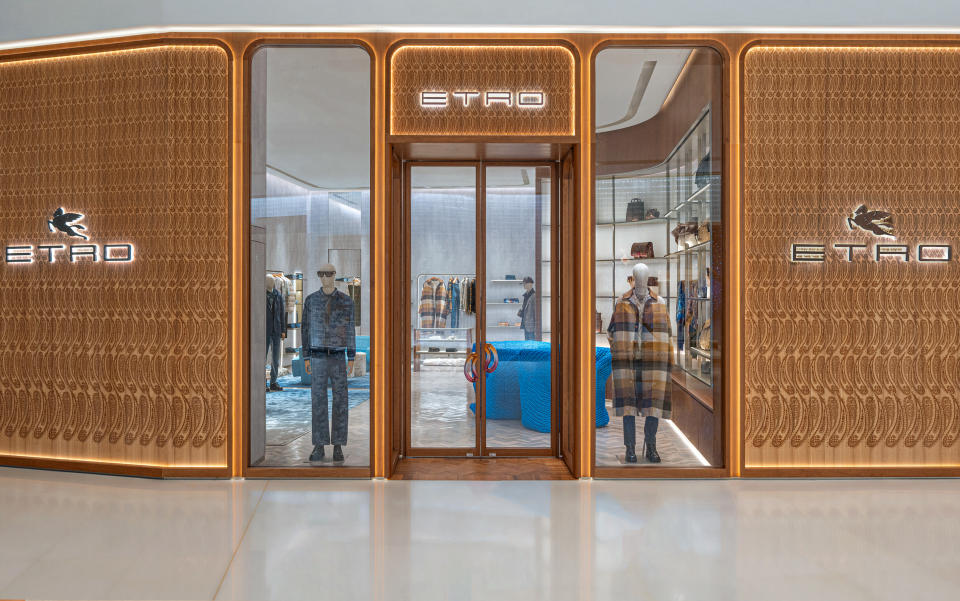Creativity, Flexibility, Imagination Key for C-suite Executives

MILAN — According to Albert Einstein, “imagination is more important than knowledge.”
To be sure, geopolitical tensions and global macroeconomic issues are putting top executives to the test, and creativity, flexibility and inventiveness are edging out spreadsheets, cookie-cutter strategies, case studies and time-honed master plans.
More from WWD
Glenn Martens on Layering Fabrics and Personalities in Diesel Fall 2024 Collection
Prada Group Joins Sustainable Markets Initiative Fashion Task Force
“Luxury must always reinvent itself, with innovation at the center of it,” according to Claudia D’Arpizio, senior partner at Bain & Company, underscoring the importance of creativity and investing in technology, talent and sustainability.
“The luxury sector is highly competitive. Customers demand the very best. It’s a constant challenge to offer them products and experiences they have never seen before. It requires continuous innovation and boundless creativity,” said Gianfranco D’Attis, chief executive officer of Prada. “We, as Prada, need to think about fresh ways to engage with all our global audiences, speaking to them everywhere they are, and reaching into new markets to build relationships and loyalty. Increasingly, customers also demand more substance, wanting the brands they love to stand for something concrete and meaningful. That expectation extends beyond the physical product and services they buy and expands into the sphere of our commitment to environmental and social issues.”
To meet the customers’ expectations, which continue to evolve, D’Attis said it is key “to constantly think about how we can stay relevant and move forward — from reinventing classic product designs and retail experiences, using cutting-edge materials and new technical innovations, or addressing some of the most urgent contemporary challenges. More than ever, all of this is built on the need to attract the best talent possible — a brilliant and diverse workforce that can bring unique perspectives.”
Reflecting this quest for innovation, for example, is the partnership between Prada and Axiom Space on the technology and design for NASA’s lunar space suits.
In a groundbreaking agreement between an Italian luxury fashion house and a commercial space company, the space suits will be developed for the Artemis III mission planned for 2025 — and the research in fabrics and technical credibility will likely trickle down to Prada’s fashion products, as it already does through the work on the Luna Rossa sailing project.
An example of an innovative retail experience that offers products that are modern yet artisanal and highly crafted is Fendi’s recent playful project that has the Rome-based brand collaborating with Hiroshi Fujiwara’s Fragment and which includes a special collection with Pokémon celebrating the Year of the Dragon. The Fendi x Frgmt x Pokémon collection, which was launched in January, spotlights a dragon-type Pokémon paying tribute to the Chinese zodiac sign.
Cue a special Baguette with intricate micro-beaded FF embroidery with the three Pokémons and fringes, or a Peekaboo ISeeU Medium in shiny white croc enriched with Dratini details on the metal handle and chain strap.
The project was backed up with dedicated pop-ups China’s Cheng-du Taikoo Li, at Isetan in Tokyo and at Selfridges in London and Serge Brunschwig, chairman and CEO Fendi, underscored that the activation “has been super well received.”

Fendi’s spring 2024 collection will be presented via special projects, such as a dedicated pop-up in Tokyo that will open on March 25. This is only one of the boutique openings and renovations earmarked for the year. In particular, Brunschwig mentioned “a new boutique opening in Cannes in the first semester and the one in the Miami Design District opening in the second.”
Although these are some of the initiatives in 2024, the year will see Fendi “starting to lay the groundwork for our centenary celebration that will happen in 2025,” said the executive. “While of course it will be a year preparing for a unique event, it will offer us the great opportunity to magnify even more the codes of our house.”
Staying true to a brand’s signatures and codes while evolving them to be in tune with the times is an effort that engages their designers and CEOs in a shared commitment.
Diesel has been going through one such revamp under creative director Glenn Martens, who was named to the post in October 2020. Diesel’s turnaround contributed to the gains in sales and profitability of parent OTB Group, said CEO Ubaldo Minelli, commenting on the upward trajectory of the company last year.
In 2023, Diesel posted sales growth of 13.1 percent, representing less than 40 percent of revenues. Repositioned under the lead of founder Renzo Rosso as interim CEO, it is seeing increased sales in the women’s division, which today accounts for almost 50 percent of business. Gen Z now represents 35 percent of its customer base. During 2023, the brand opened 15 stores in Europe, China, India and North America, including flagships in Paris, Miami, Antwerp and Guangzhou.
This season, Martens has decided to livestream the styling, casting and the backstage preparations of the show from Sunday until the runway event on Wednesday.
In addition to Diesel, OTB controls the Jil Sander, Maison Margiela, Marni and Viktor & Rolf brands, production arms Staff International and Brave Kid, and holds a stake in the Amiri brand.
Minelli confirmed OTB is still determined to launch an initial public offering on the Milan Stock Exchange “either in the last quarter of 2024 or in the first quarter of 2025. We are working to be ready for this but we are not in a rush. We are fully convinced the Bourse will allow us to be more transparent, to be aligned with the highest standards in the industry, and will facilitate the generational handover. We have made our choice and the IPO is not in question.”
Brunello Cucinelli, whose namesake company has been publicly listed since 2012, sees “a strong return to elegance, refined clothes that are beautifully crafted,” supported in his view by protecting and promoting the work of artisans, as well as Italy’s supply chain. In fact, while Cucinelli’s fashion is generally considered in sync with the quiet luxury trend, he wondered if the terms apply to “great manual craftsmanship, chic, luxurious, beautiful and precious products. I think that is all much more than silent, I don’t like that term,” he reiterated on Tuesday in a preview of his fall collection.
Bally CEO Nicolas Girotto praised the direction creative director Simone Bellotti has been carving for the Swiss brand, in “a right balance, respecting the codes of the brand with his fresh vision and interesting creative vision.”
Accordingly, the company is investing in adapting Bally’s store to Bellotti’s aesthetics for the brand and has opened a store in Tokyo with a new blueprint conceived by the designer. China represents more than 35 percent of sales for Bally and Girotto said that, while the Chinese New Year business was “softer than usual,” that long-term drivers are not changing and that he can see further growth in the region.
“India, while still a small market, is showing great potential, together with the Middle East,” said Girotto. “We’ve been seeing a change in tourist patterns, with more intra-regional trips rather than international ones, which has been changing the travel retail business very much, with the development of new markets, such as the island of Hainan, for example. Overall travel retail is picking up, but with a deep change in flows.”

Fabrizio Cardinali, CEO of Etro, said 2023 “clearly highlighted the importance of the physical purchasing experience, which has returned to having a key role in the relationship with the customer.” Accordingly, a focus for the year will be “to strengthen the brand identity, amplifying its already extraordinary awareness and leveraging its still unexpressed potential.”
The company is planning new openings in the Middle East, the U.S., Asia-Pacific and Japan, entirely renovating the stores, as it has done in Dubai. Etro has unveiled a dedicated space in Via Montenapoleone offering a made-to-order and tailoring service.

Matteo Tamburini at Tod’s, Adrian Appiolaza at Moschino and Walter Chiapponi at Blumarine are tasked with working on the storied brands’ codes through their own vision, unveiling their first collections for the three labels in Milan.
Massimo Ferretti, executive chairman of Moschino parent Aeffe, said “obviously there is great attention on the evolution of the brand,” in light of the arrival of Appiolaza as its new creative director. “Therefore, it will be a year that will see the redefinition of the aesthetic codes of the brand, and for which we have great expectations,” said Ferretti, while also spotlighting the other brands in the group — Alberta Ferretti, Philosophy di Lorenzo Serafini and Pollini — which will also show in Milan during fashion week.
Ferretti is evaluating opportunities to expand the retail footprint for all the group’s brands, expressing satisfaction with that channel, which last year posted a 7.2 percent increase in revenues to 94.9 million euros. “We are also investing in the restyling of our e-commerce platforms, whose business is growing in a very interesting way,” said Ferretti.
As reported, a slowdown in the European and American markets and at wholesale impacted the performance of Aeffe SpA last year, despite a gain in Asia and in the group’s retail channel.
In 2023, group revenues decreased 9.5 percent to 319 million euros and the executive admitted that “the instability of the global markets where we operate is surely an extremely challenging element, which impacted the performance of the sector last year and that I believe will continue to play an important role in the development of the business in 2024. However, we are confident the solidity of the partnerships with the most important international retailers, which can benefit from the quality of the service that our group is able to guarantee, will allow us to grow with all our brands.”
Sales of Italy’s fashion and connected industries (including textiles, clothing, leather goods, footwear, jewelry, eyewear and cosmetics) are expected to grow 4 percent to 102.8 billion euros in 2024 compared to the previous year. In 2022 sales of the overall sector grew 20.8 percent to 98.8 billion euros versus 2021, when the total turnover also increased more than 20 percent.
As for exports, in the first 10 months of 2023 they continued to be a key driver for the industry, increasing 4.1 percent, with 1 percent growth in the core sectors — textiles, clothing, leather goods, footwear — and 13.7 percent in the jewelry, eyewear and cosmetics categories, compared to the same period in 2022.
According to projections, exports of the overall sector are expected to grow 4.2 percent to 89.9 billion euros in 2023, compared to 2022.
Best of WWD


